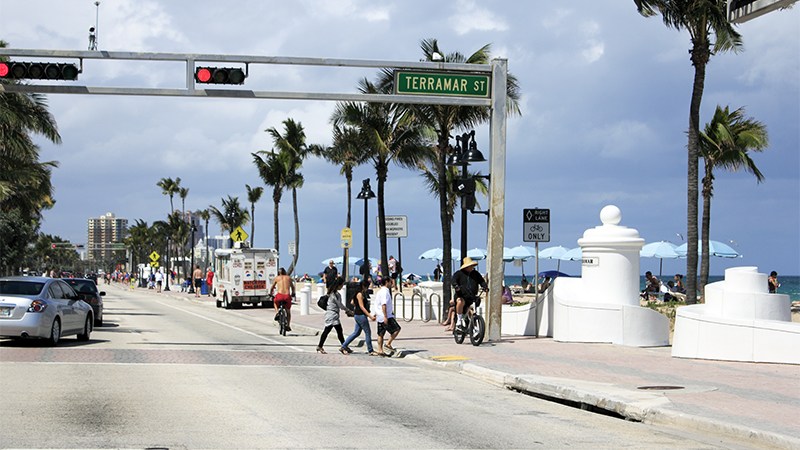Florida epitomizes Sun Belt autosprawl and all its attendant dangers for people on foot. The state routinely ranks among the deadliest for walking.
But it could have been worse, according to a new study published in the American Journal of Public Health.
Florida adopted a statewide complete streets policy in 1984. The law stated that routes for biking and walking must be considered in road construction projects, with a few limited exceptions. It also charged the state with developing a statewide "integrated system of bicycle and pedestrian ways."
The law, now 34 years old, did not transform car-centric transportation planning in Florida, and the state's streets remain unacceptably dangerous for walking. But even this incremental step saved lives, according University of Georgia researcher Jamila Porter.
Porter and her team compared changes in Florida's pedestrian fatality rate to national trends, as well as to other Sun Belt states without complete streets policies. They found that pedestrian deaths fell faster in Florida after the complete streets law was adopted than they would have if the state had tracked trends in peer states or the U.S. as a whole. The difference added up to between 3,500 and 4,000 lives saved over a 30-year period.
While Florida's per capita pedestrian fatality rate fell 60 percent, from 6.36 fatalities per 100,000 people to 2.56, it remains among the most dangerous in the nation for walking. In 2015, only Delaware had a higher rate.
In interviews with 10 Florida DOT officials, each with at least 15 years of experience, Porter and her team also highlight how the law was not sufficient on its own to change the cars-first culture at the agency. While infrastructure for walking and biking was tacked on to projects, the state still focused on moving motor vehicles, not creating safe bike and pedestrian networks.
"We did well what we thought we knew to do well. We provided a 5-foot sidewalk... that was it. Or we provided a bit of bike lane," said one staffer. But the state was still "consumed with the requirements -- that we have adequate capacity for cars on roadways -- and part of that was based on the ability of a car to get from location A to B in a timely manner and fast."
Other state policies worked against the goals of the complete streets law. One staffer pointed out that Florida still places too much emphasis on metrics of motor vehicle throughput, like level of service, that undermine pedestrian safety. Some said that while the state's policies were better than most, Florida should have made more progress.






